Check out some books by your tutor Fiona Veitch Smith … (click on the book covers to find out more)
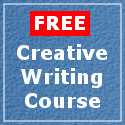 Hello everyone, welcome to the first session of our free online creative writing course. Over the next eight sessions we will be looking at different aspects of creative writing and trying our hand at various forms. I’d strongly encourage you to have a go at the exercises along the way, and please feel free to leave comments or ask questions at the end. If you have arrived on this page without first reading the home page and frequently asked questions page (on tab above) please go back and do so now. If you have read them, enjoy the course!
Hello everyone, welcome to the first session of our free online creative writing course. Over the next eight sessions we will be looking at different aspects of creative writing and trying our hand at various forms. I’d strongly encourage you to have a go at the exercises along the way, and please feel free to leave comments or ask questions at the end. If you have arrived on this page without first reading the home page and frequently asked questions page (on tab above) please go back and do so now. If you have read them, enjoy the course!
Creativity and Art
What is creativity? The Collins dictionary defines it as ‘the ability to cause something to exist’. Without getting into too much of an existential discussion, I would say that with every thought that is expressed, something has been created. It was Descartes who said: ‘I think, therefore I am’; well I would add, ‘I think, therefore I create’ (do you feel a God complex coming on?). But how do we express our thoughts? Sometimes we do it verbally, other times by body language and still again through what is loosely termed ‘art’.
Art takes place when a thought is expressed and fixed in a way that other people may experience it on an aesthetic level – through music, writing, painting, sculpture, choreography and so on. Many artists say that their best work takes place when they ‘by-pass’ the thought and simply express the feeling. This may be true, but for writers, who use a verbal medium, a feeling must first be converted into a thought before it can be put into words. Don’t over analyse the thought before you express it, as this way you can ‘channel’ the purest interpretation of the feeling, but some cognitive process needs to take place. Some writers prefer to mull over a thought and give it form before they put pen to paper – I’m one of them – but it’s good practice to try and switch off the ‘editor’ at least for the first draft. First response trigger exercises are useful in this regard and can release some unexpected words and images.
Exercise 1:
Write down your first response to these words or phrases:
- Blue ball
- And that’s when the sadness came
- Coffee
The first task of a good writer is to convert feelings into thoughts and then into words. This is the raw material that can then be converted into something more permanent. Some writers refuse to toy with their first drafts, believing their creativity will be diluted; I disagree. Allowing your critical mind to improve a piece of writing is where the craftsman meets the artist. Something produced only by the former will lack soul and something by the latter will lack form. Good writing is a combination of art and craft.
For public consumption
Art, of course, is highly subjective and one woman’s masterpiece is another woman’s unmade bed. We all have the ability to create, but whether or not our creation is ‘art’ must be left to the eye or ear of the beholder.
In this session we will look at how you can craft those creative thoughts into creative writing to share with other people. And that’s what sets ‘public’ writing apart from ‘private’ scribblings – there’s a perceived readership in mind. When I ramble on in my journal, I am the only one who will read it (hopefully!) so my only concern is getting my thoughts down on paper. The moment I want someone else to read it I begin to consider ways to improve the presentation and craft it into something more aesthetically pleasing. I consider which words may sound more colourful, whether or not my sentence structure is grammatically correct, whether I’m using evocative imagery, and so on.
Story, feeling or image?
What is it about those creative thoughts that you think might be of interest to other people? Do they speak of an eternal truth or a common experience? Do they make you laugh or cry? Do they suggest a story that will entertain or a poem that captures a moment that must be shared?
Exercise 2: In 50 words or less write down why you want to write then list three creative thoughts that you’ve had lately (each 10 words or less). These may be an image, a musing, a ‘truth’, a story, or so on. If you haven’t had any, take yourself for a walk and look around; what grabs your imagination? Browse through a newspaper or a magazine; do any stories or pictures catch your attention? Think back over your day; did anything funny, charming, shocking or unusual happen to you or someone you know?
Poetry or prose?
Some people are more suited to writing poetry than prose and some people do well at both. Although we won’t be discussing it in this course, other people are more suited to script. I’m one of them. I’ve had relative success as a prose writer and in fact have managed to earn a living from it, but it’s taken years of hard work to get to this point. I recently branched out into scriptwriting and found that I had much more of a natural ability. (If you’re interested in finding out more about scriptwriting, check out getting started in playwrighting). You may find that you’ve been trying to make it as a poet when actually you’re more suited to prose. Now I don’t want to pigeonhole anyone, but ask yourself the following questions:
- Are you more attracted to films than stills?
- Do you enjoy telling people ‘stories’ from your life?
- Do you prefer to read stories or poems?
If yes, to these, then you may be more suited to prose than poetry. If no, then the opposite may be true. If it’s ‘sometimes yes, sometimes no’ then perhaps you are suited to both. We shall be looking at how to write poems in more detail in session 7, but suffice to say, a poem is like a snapshot of a moment. If you can’t rest until you know what happened before and after, then prose may be your genre.
Exercise 3: Take one of the three creative thoughts you wrote down in Exercise 2, then list 20 separate words that communicate or describe that thought. Do not, at this stage, link the words into sentences. Once you have your 20 words use them in a poem of 16 lines or less. Then, take the same 20 words and work them into a short story of under 300 words. Which exercise came more easily? Which form has best communicated your creative thought?
Further Resources:
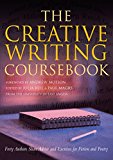
There are some excellent resources out there for creative writers. To get quick ‘starter’ images when your own well is dry I recommend The Writer’s Block by Jason Rekulak. I’m currently working through The Creative Writing Coursebook by Julia Bell and Paul Magrs and finding it very useful.
The next creative writing course session is how to write a short story. But before you move on to that, please feel free to leave a comment or ask a question in the box below.
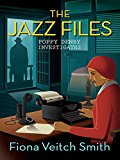
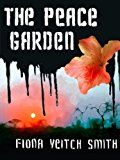
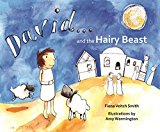
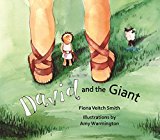
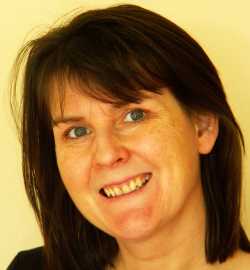 Welcome to The Crafty Writer's free online creative writing course, presented by Fiona Veitch Smith, a freelance journalist, editor, author, playwright, screenwriter and writing teacher. I hope that you'll see a dramatic improvement in the quality of your writing as you work through this course.
Welcome to The Crafty Writer's free online creative writing course, presented by Fiona Veitch Smith, a freelance journalist, editor, author, playwright, screenwriter and writing teacher. I hope that you'll see a dramatic improvement in the quality of your writing as you work through this course.
Here are my responses to the three phrases
Blue Ball: The world floating in space going round and round and never stopping enough so that I can understand it.
And then the sadness came: The day my ten year old daughter died suddenly from a brain aneurysm.
Coffee: Thoughts in my brain snapping like a fallen live electrical wire on a wet street
I found this very useful, and thank you very much. I’ve realised that both poetry and short stories come easily to me, but I discovered that the poetry flowed more naturally. I wrote the poem about a character (antagonist) that I had in my head for a script I’m writing, a small story arc for an episode, and the poem helped me define the character in a better way, and the short story helped me develop her backstory in a more defined, proper and need-to-know basis, so thank you also for the help on that matter. I really appreciate the fact that you put up a free online lesson, thank you so very much and I cannot wait to get onto the next lesson. You’re very kind. ^_^ xxx
p.s. As a 17-year-old who, with constant school work, cannot get out to a writing course, this is been amazing for me so thanks so very, very much (again!) xD
You’re most welcome Nicola. Happy writing.
I just completed the introduction to this course and I have to say, as a lifelong creative writer and teacher, I am very impressed with your lesson and its ability to be helpful not only at the “advanced” stage of a writer’s career (whatever THAT really means) but would be very useful in any middle school, high school, or freshman college classroom. I might just adapt some of this into a lesson or two in the future, if that would be alright with you. Thanks so much, and I’m looking forward to progressing right along through the course.
Thanks so much, and I’m looking forward to progressing right along through the course.
Thank you Jeff. By all means use some of the concepts but the material itself is copyrighted. You may of course refer your students to the website. Hope you enjoy the rest of the course.
I just finished Lesson 3. I can’t tell you how much I enjoyed this. I have been out of school a very long time (1980). I did not go to college and have regretted it all my life. I am an almost 50 ( still a 40 something for a few more months lol)young wife, mother and grandmother to whom I had devoted my whole life to, and now I am facing an empty nest. I have always had dreams of being a writer( after high school of course) but I hated English when I was young, and I do have horrible grammar skills so I guess you can say I am a beginner. I am searching for websites that can help me learn my basic grammar skills as will. Any suggestions I would greatly appreciate.
Hi Sheila, glad you’re enjoying the course. There is a free online English grammar course that may be of use to you. http://www.english-online.org.uk/ Try it out.
Happy writing
Fiona
I just decided to try writing as a way of releasing my creative energy. I had always wanted to, but my own negative thoughts always stopped me. Now I am ignoring those thoughts and moving forward with my desire to write. I loved the first exercise. It took me a few days as I had to find time to fit it in but I loved what came up out of me. I was surprised at how I could use words to describe a feeling rather than using them to outline a thought. I’m looking forward to continuing. Thanks for this course!
You’re welcome Susie. Glad you’re feeling ‘unblocked’.
I did the first response exercise and I agree with you about not thinking too much about what I am going to write. When I wrote what I felt it flowed. I am looking forward to the next lesson. Thanks so much!
You’re welcome Gilberto.
I`m so excited over this course I love writting but I never had an opportunity to study it.
In doing Exercise 3, if I have no interest in writing poetry, should I still write a poem?
Hi Sally, there’s no right or wrong way to do this. You don’t have to write a poem if you don’t want to. However, prose writers (ie writers of stories and books) often find that practising poetry helps them in their use of language. Poetry helps you to concentrate on the affect of words on the reader and the rhythm of sentences. These are all very useful in your writing. But hey, it’s up to you. This is supposed to be fun! Happy writing.
thank you so much for offering this course free of charge! i am a new mom and wife and i recently found that writing is my calling! in the process of polishing up my writing resume, thnk you so much for the opportunity to expand my horizons!!
You’re welcome Maddie. I found writing one of the few things that kept me sane when I was a new mother!
I am so inspired by the writing I have just done. I have wanted to write a book for years. This is ultimately my goal, however, I have been lacking the follow through to get started. I am now taking responsibility for my life and creating my own destiny..This exercise has opened by eyes to the possibilities. Thank you
Then it’s mission accomplished on my part! Go girl!
Hi my name is David. I am considering writing about a three year period of my life. A time of terrible abuses in my life as a boy in the 70′s. At present I have leagle case pending aginst the Catholic church. Any suggestions?
You will need to confer with your legal team on this. You’re on very thin ice.
In terms of the actual writing, this falls into writing from life which is covered in my other course http://non-fiction-writing-course.thecraftywriter.com/
can I email you privately?
You can use the contact form on the menu David. Your message will not be viewed by the public, just by me and my web administrator.
Just to say though I’m not prepared to give you a legal opinion if there are legal proceedings underway.
I want to write a piece of fiction based on my experiences while working for a well-known international organization, which is as readily recognized as the FBI, the CIA, the KGB, the United Nations, etc. Do I need their permission to reference them in my book?
Fiction is fiction, but make sure that it really is. The FBI etc are frequently used in fictional accounts so you don’t need their permission. If you were writing a non-fiction memoir you would need legal advice from a lawyer (not from me) as to what would be considered libellous or not.
I have been wanting to put my thoghts,feelings and experiences into words but was not sure where to begin.
a friend found your advice on creative writing on the internet(which i never use) so i read through it and found it very interesting and helpful.
I would read two or threee to books a week and have a great imagination,therefore i would love to express my thoughts etc in the form of writing or indeed poetry.
Hi Jim. What a treat to be able to read two or three books a week! If I have time to read two or three books a month these days it’s a miracle. I’m very envious. Hope you enjoy the course.
I thought the exercises in the first session were very enlightening, I never knew that my first short story would come so easily, using a few short words. Once I began the words just started pouring out, and i began to get to know my main character through out the rest of my story.
OH this is an awesome free course… I haven’t started any of the lessons as of yet, but first wanted to ask a question . Is there a place where we can post our work? I think it’d be awesome if the people who are interested in doing so could read each other’s work that they collect through the assignments in this course
. Is there a place where we can post our work? I think it’d be awesome if the people who are interested in doing so could read each other’s work that they collect through the assignments in this course  .
. . I love writing prompts as they are a wonderful way to get the ol’ creative side of the brain turning
. I love writing prompts as they are a wonderful way to get the ol’ creative side of the brain turning  .
.
Thank you for offering this free course! I bought two books over the past month in hope of refining my own writing skills/talents
-Rebecca
Hi Rebecca, people can post their writing in this comment section.
Oops! I guess I like prose better as I just wrote 676 words in 15 minutes on exercise 3.
This course is a breath of fresh air. I needed a tune up bad. Thanks for offering it for free